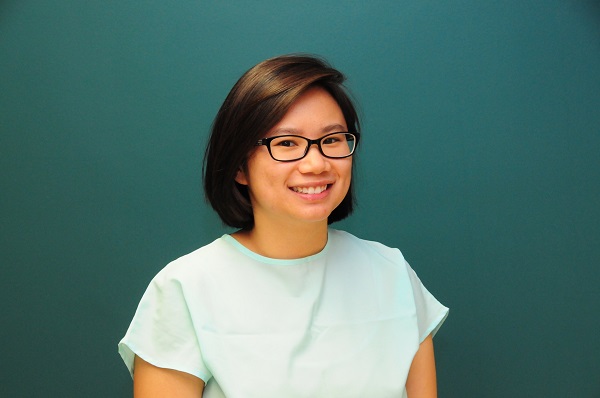 Jennifer Lai is a PhD Candidate in the Department of Sociology at Michigan State University (MSU). She studies scientific knowledge production and for her dissertation, is investigating how knowledge about environmental risk factors are produced within the context of type 2 diabetes.
Jennifer Lai is a PhD Candidate in the Department of Sociology at Michigan State University (MSU). She studies scientific knowledge production and for her dissertation, is investigating how knowledge about environmental risk factors are produced within the context of type 2 diabetes.
Jennifer earned an undergraduate degree in Engineering, and then served for two years in AmeriCorps, first as an environmental engineer in Washington state, and then as a classroom teaching aide in Minnesota. That spirit of service informs not only her research, but her time as a graduate student, where she focuses on serving her colleagues and peers and inspiring others to incorporate a service mindset in their work. Jennifer believes that “service should be at the core of not only scientific communities, but any scientific endeavor.”
Doctoral courses on participatory action research (with Dr. Kimberly Chung, Associate Professor and Chair in the program of Community Sustainability) and feminist research methods (offered by the Center for Gender in Global Context’s Gender, Justice, and Environmental Change certification) were instrumental in helping Jennifer embrace the importance of emotional and social justice drivers in research; these courses also introduced the idea that those motivational factors do not have to be abandoned during the pursuit of knowledge. “It is from these courses that I learned how to center the issues I care about as long-term motivations for the work that I do.”
As a proud feminist scholar, Jennifer is particularly keen to confront scholarly practices that overtly do harm to others but is equally interested in how practices inadvertently do harm. An issue that Jennifer experienced firsthand and found to be a common problem for her peers involved the challenges that came with working on projects in which the expectations and procedures required to achieve the project objectives were not made clear. Navigating this murky and ambiguous approach to scholarship did not suit her, or her peers.
Jennifer saw an opportunity to apply her engineering background to help implement project management procedures that would clarify the expectations and responsibilities associated with graduate and undergraduate employees on a given project. “My understanding of ‘research’ has changed dramatically since entering my graduate program; I now know it to be this intense cycle of data collection, followed by maybe a little bit of data analysis, all of which gets subsumed by the need to apply for the next grant. This often means that mentoring students through other stages of the research process, such as producing reports, posters, or journal articles, receive far less attention.” By focusing on processes, Jennifer found that consistent communications were key for fostering trust and reliability among team members; she also found that it was important to demonstrate, not just discuss, specific work standards while generating research products. “The strongest argument for doing things a certain way is to show that you yourself have attempted it, and that it works,” says Jennifer. As such, she has strived to move beyond proposing ideas, instead working alongside her colleagues to figure out the best processes for completing a task that actively engages with the unique talents, strengths, and insights of individual team members.
Implementing these practices in a social science research setting has provided a unique training ground for Jennifer to develop and hone her mentoring skills. “Sociology draws from a wide variety of methods and has the latitude to examine social problems at every ‘level,’ everywhere, historically and presently. It’s a difficult discipline to get your arms around.” With her analytical acumen, service orientation, and hands-on approach to tackling complex issues, however, Jennifer has developed what she has refers to as a “gut instinct” when it comes to making decisions pertaining to research, or helping a fellow colleague navigate how best to pursue their ambitions and scholarly interests. She notes that this “gut instinct” emerged only after years of following administrative guidelines and advice that didn’t necessarily serve her well. Instead, she realized she needed to pay more attention to her unique goals and motivations, and by following her gut, she could embrace more sustainable forms of motivation to produce work that she cared about. She also shares this approach with others to help them better attend to their own “gut instinct.” “I hope that by demonstrating these techniques myself – reliable communications, following my gut, articulating the personal motivations for pursuing research – I can help normalize these practices that are so crucial to the production of scientific knowledge.”


